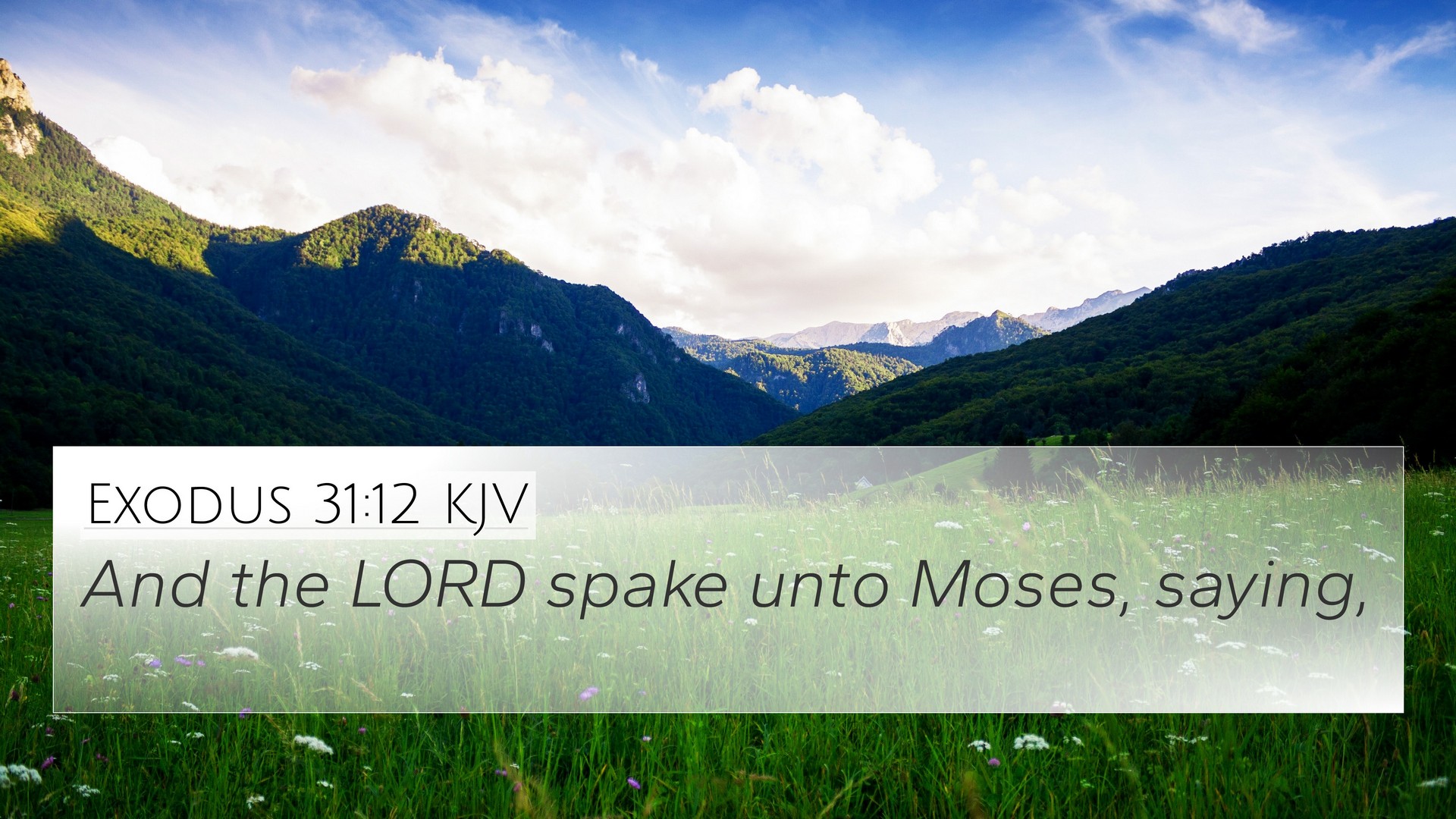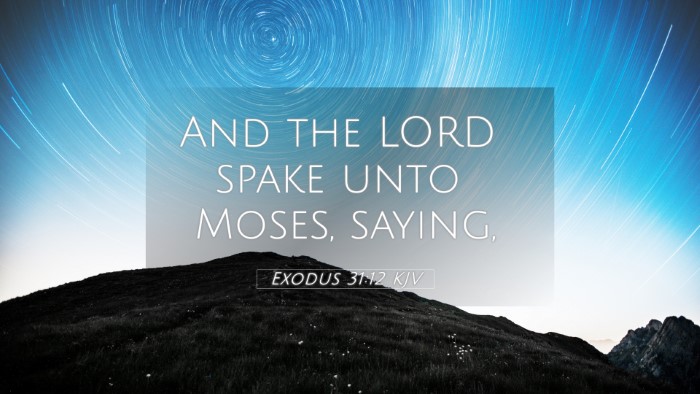Understanding Exodus 31:12
Overview: Exodus 31:12 marks a significant point in the narrative where God emphasizes the importance of the Sabbath and its observance among the Israelites. This verse not only highlights the sacredness of the day but also serves as a reminder of God's creative work and covenant with His people.
Verse Text
"And the LORD spake unto Moses, saying," (Exodus 31:12, KJV)
Meaning and Insights
This verse initiates a direct communication from God to Moses, indicating the seriousness of the command that follows. The significance of God's speech to Moses emphasizes His authority and the vital nature of the instructions being given.
Commentary Insights
- Matthew Henry's Commentary: Henry emphasizes that God's covenant is demonstrated through the observance of the Sabbath. He sees the verbal command from God as a means to instill reverence for the divine law and the need for rest as ordained by God.
- Albert Barnes' Notes: Barnes notes the importance of God's communication with Moses. He points out that the subsequent laws given (including those about the Sabbath) were crucial for the Israelite community's identity and sustainable relationship with God.
- Adam Clarke's Commentary: Clarke provides insights into the nature of God's directive as not just a command but a profound declaration of His authority as the Creator. The emphasis on the Sabbath is a reminder to the people of Israel of their deliverance from Egypt and their need for rest and reflection.
Connecting Biblical Texts
Exodus 31:12 can be cross-referenced with several other verses that relate to the theme of rest, covenant, and divine communication. Below are some notable connections:
- Genesis 2:2-3: God's rest on the seventh day serves as the foundational model for the Sabbath.
- Exodus 20:8-11: The Fourth Commandment explicitly instructs observance of the Sabbath, echoing the themes found in Exodus 31:12.
- Leviticus 23:3: Discusses the Sabbath as a holy convocation, reinforcing its importance among the Israelites.
- Deuteronomy 5:12-15: Reiterates the commandment to observe the Sabbath, reminding Israel of their deliverance from slavery.
- Isaiah 56:2: Links blessings to those who keep the Sabbath, illustrating its enduring significance.
- Matthew 12:8: Jesus, referring to the Sabbath's significance, indicates His lordship over it, reinforcing the spiritual dimensions of rest.
- Mark 2:27: Jesus explains the Sabbath was made for man, not man for the Sabbath, highlighting its purpose and need for mercy.
- Hebrews 4:9-10: Discusses the spiritual rest available in Christ, connecting the Old Testament principle to the New Testament application.
- Revelation 14:13: Speaks of resting from labors, providing a forward-looking perspective on divine rest.
Thematic Analysis
This verse and its connections involve a thematic exploration of rest, covenant, and divine authority. The Sabbath not only serves as a day of physical rest but also a spiritual reprieve that reinforces the covenantal relationship between God and His people.
Importance of Cross-Referencing
Utilizing cross-referencing strategies enhances biblical understanding and interpretation. Biblical concordances and reference guides are invaluable tools for discovering how scripture interconnects, leading to deeper theological insights.
How to Use Bible Cross-References
To find cross-references:
- Consult a Bible concordance for keywords.
- Use a Bible cross-reference guide to identify related verses.
- Engage in cross-reference Bible study methods to develop a holistic understanding.
- Employ digital Bible reference resources for quick access to linked texts.
Final Thoughts
The act of cross-referencing biblical texts not only reveals the richness of scripture but also assists in comprehensively understanding the significance of passages like Exodus 31:12. As believers explore these connections, they affirm the unity and consistency of God's message throughout the Bible.


